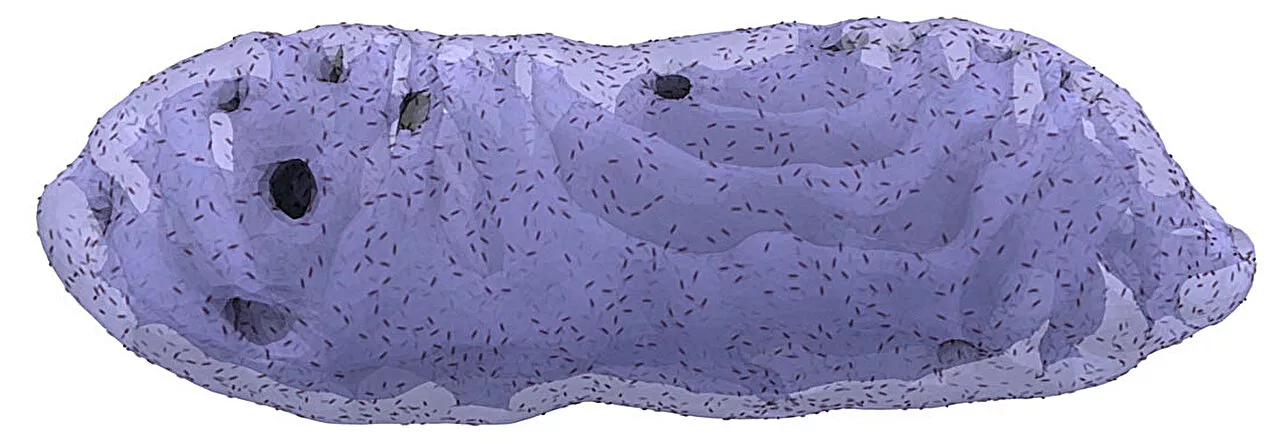Researchers have found distinct biological differences in a small group of people with ME/CFS compared to healthy controls, providing evidence that the condition is unambiguously biological.
In 2016, years before long COVID was a thing, the US National Institutes of Health , the largest single public funder of medical research in the world, launched a study into a long-neglected and puzzling condition:Eight years later, the results of that study are finally out.
In one of the most thorough investigations to date, researchers took a deep dive into a small group of 17 people who developed ME/CFS after an infection and found distinct biological differences compared to 21 healthy controls. "Overall, what we show is that ME/CFS is unambiguously biological, with multiple organ systems affected," neurologist Avindra Nath, lead researcher of the study and clinical director of NIH's National Institute of Neurological Disorders and Stroke (NINDS),ME/CFS as a psychosomatic condition that was 'all in patients' heads'. Now there is little doubt: a host of biological changes underpin ME/CF
Study ME/CFS Biological Research Health
United States Latest News, United States Headlines
Similar News:You can also read news stories similar to this one that we have collected from other news sources.
 New study reveals molecular fingerprint of biological agingResearchers have uncovered blood-based markers linked with healthy and rapid aging, allowing them to predict a person's biological age -- how fast a person's cells and organs age regardless of their birth date.
New study reveals molecular fingerprint of biological agingResearchers have uncovered blood-based markers linked with healthy and rapid aging, allowing them to predict a person's biological age -- how fast a person's cells and organs age regardless of their birth date.
Read more »
 Brain Dysfunction May Be at Root of Chronic Fatigue SyndromeA multimillion-dollar government study has revealed several key understandings about ME/CFS.
Brain Dysfunction May Be at Root of Chronic Fatigue SyndromeA multimillion-dollar government study has revealed several key understandings about ME/CFS.
Read more »
 Harvard/MIT Study: Schizophrenia and Aging May Share a Common Biological FoundationScience, Space and Technology News 2024
Harvard/MIT Study: Schizophrenia and Aging May Share a Common Biological FoundationScience, Space and Technology News 2024
Read more »
 Physicists develop modeling software to study biological membranes at the mesoscaleResearchers at the Niels Bohr Institute, University of Copenhagen and University of Southern Denmark have recently published FreeDTS—a shared software package designed to model and study biological membranes at the mesoscale—the scale 'in between' the larger macro level and smaller micro level.
Physicists develop modeling software to study biological membranes at the mesoscaleResearchers at the Niels Bohr Institute, University of Copenhagen and University of Southern Denmark have recently published FreeDTS—a shared software package designed to model and study biological membranes at the mesoscale—the scale 'in between' the larger macro level and smaller micro level.
Read more »
 Your brain in the zone: A new neuroimaging study reveals how the brain achieves a creative flow stateA new neuroimaging study reveals how the brain gets to the creative flow state.
Your brain in the zone: A new neuroimaging study reveals how the brain achieves a creative flow stateA new neuroimaging study reveals how the brain gets to the creative flow state.
Read more »
 Icy impacts: Planetary scientists use physics and images of impact craters to gauge the thickness of ice on EuropaNew study reveals that Europa's ice shell is at least 20 kilometers thick.
Icy impacts: Planetary scientists use physics and images of impact craters to gauge the thickness of ice on EuropaNew study reveals that Europa's ice shell is at least 20 kilometers thick.
Read more »
